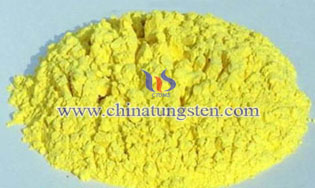Norway Discovers Rare Earths on Sea Floor
- Details
- Category: Tungsten's News
- Published on Monday, 03 April 2023 19:18
- Hits: 566
Norway has discovered a "substantial" of metals and minerals ranging from copper to rare earths on the seabed of its extended shelf. These resources are of high interest for their role in the transition to a green economy. The Nordic country, a major oil and gas exporter, is considering whether to open its offshore areas to deep-sea mining, a process that requires parliamentary approval and raises environmental concerns.
Among the metals found on the seabed in the study area, magnesium, niobium, cobalt and rare earth minerals are found on the European Commission's list of key minerals," the Norwegian Petroleum Directorate (NPD), which conducted the study, said in a statement. Sweden has discovered the largest deposit of rare earths in Europe. It could help reduce dependence on China."

Resource assessments covering remote areas of the Norwegian and Greenland Seas show 38 million tons of copper, almost twice the amount mined globally each year, and 45 million tons of zinc accumulated in polymetallic sulphides.
Sulfides, or "black smokers," are found along mid-ocean ridges, where magma from the Earth's mantle reaches the seafloor at a depth of about 3,000 meters.
Manganese crusts that have grown on bedrock for millions of years are estimated to contain about 24 million tons of magnesium and 3.1 million tons of cobalt, as well as 1.7 million tons of cerium, a rare-earth element used in alloys. Manganese crusts are also estimated to contain other rare earth metals, such as neodymium, yttrium and dysprosium.
NPD said, "Expensive rare minerals, such as neodymium and dysprosium, are extremely important for magnets in wind turbines and engines in electric cars." Environmental groups have called on Norway to postpone its seabed mineral exploration until more research is done to understand the organisms that live on the seafloor and the impact of mining on them. As ice disappears, investors are funding a massive treasure hunt in Greenland
In an advisory letter, the Norwegian Institute of Marine Research said there is a "great lack of knowledge " of the deep sea, where new and undiscovered species are likely to be found. The International Seabed Authority, the U.N. subsidiary that oversees the deep-sea mining industry, is expected to announce regulations for the fledgling industry in July. Many scientists warn that mining the deep sea could have dramatic and irreversible effects on fragile ecosystems.

NPD said its estimates show that resources are "in place" and further studies are needed to determine how much can be recovered with acceptable environmental impact. The discovery in Norway comes after Swedish mining company LKAB announced in January that it had discovered Europe's largest rare earth oxide deposit in the far north of the country. The rare earths market is dominated by China, and Europe is currently not mining rare earths and therefore relies on imports.
Reference: https://edition.cnn.com/2023/01/30/business/norway-minerals-seabed-deep-sea-mining-climate-intl/index.html
- Rare Earth Manufacturer & Supplier, Chinatungsten Online: www.chinatungsten.com
- Tungsten News & Prices of China Tungsten Industry Association: www.ctia.com.cn
- Molybdenum News & Price: news.molybdenum.com.cn
- Tel.: 86 592 5129696; Fax: 86 592 5129797; Email: sales@chinatungsten.com








 sales@chinatungsten.com
sales@chinatungsten.com